Mangaluru, Jun 27: A day after his arrest Yuva Brigade leader Naresh Shenoy aka NaMo Naresh was on Monday remanded in three-day police custody by a local court here in connection with RTI activist Vinayak Baliga murder case.
Before he was produced before III JMFC court, Naresh was subjected to medical tests at Government Wenlock hospital in city amidst tight security.
Inspector Ravish Nayak from Urwa police station escorted Naresh while special investigation officer of the case ACP Tilak Chandra produced him before the judge.
The police sought Naresh's custody to continue to interrogate him and gather more details about the March 21 murder.
The judge accepted the plea of the cops and granted the police custody of the prime accused in the case till June 30, sources said.
Naresh was arrested by the CCB police at Hejamadi in Udupi district on Sunday. The police have so far arrested seven persons pertaining to the murder of Baliga.
The police first arrested Vineet Poojary, Nishit Devadiga and Shiva alias Shivaprasad, who allegedly murdered Baliga. Later police arrested photographer K. Manjunath Shenoy alias Manju Neereshwalya for allegedly helping Naresh in evading arrest. On June 18, police arrested Srikant, a close associate of Naresh, who was accused of hiring services of the three assailants.Earlier, Mangaluru city police commissioner M Chandra Sekhar told media persons that Naresh not only hatched the murder plan but also destroyed evidence in the case.




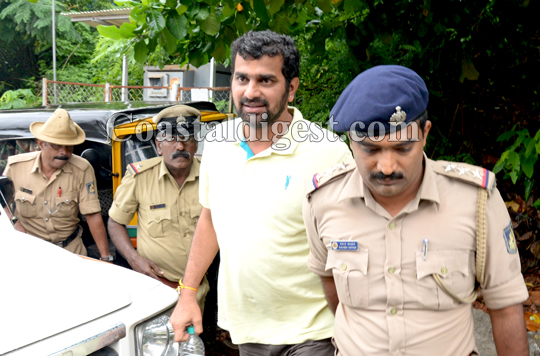
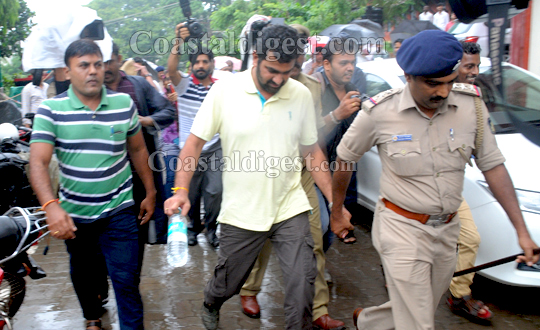
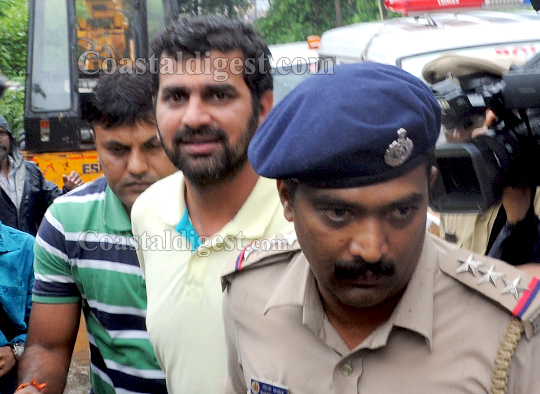
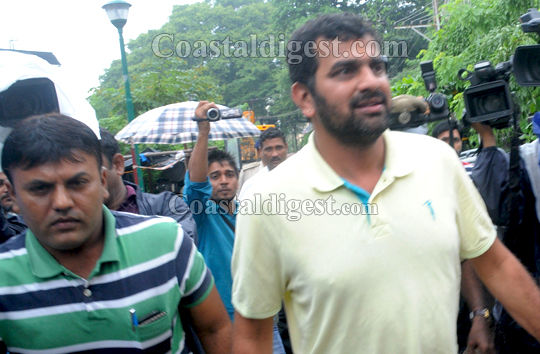
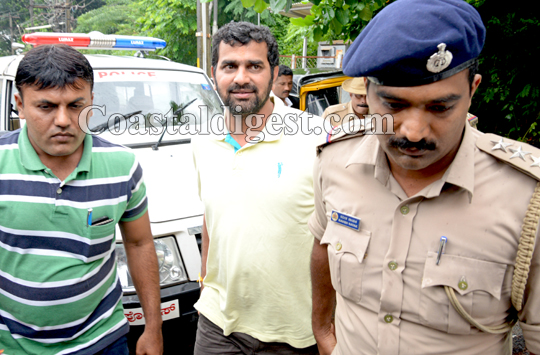
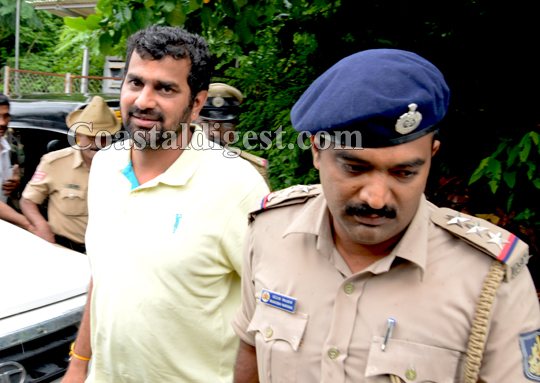
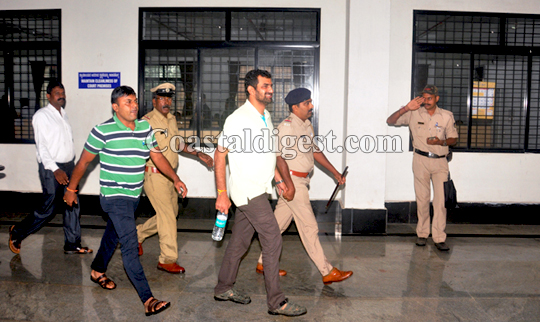

Comments
seams like police and murder going honeymoon, wah what jodi. look at them both look so happy
MURDER ACCUSED AND SAFFRON TERRORIST, WHY NO HANDCUFF? SEE THE DOUBLE STANDARD OF THE CHADDI COPS......
SHAME ON YOU.
Looks like criminal is happy and officers are sad by arresting Namo Brigader.
now the question is how soon he secure the bail
confused !!!! constable is saluting the accused or his higher up ?
The same Police how they treated Mulky Rafiq and Madoor Isubu when they surrendered..!???? How they detained Dubai bound passenger who blamed to be morphed Sadhvi's picture..!!?? How they treated who carried some lotion and Channa masala through Mangalore airport and treated him, called him terrorist planned to blast Mangalore airport and hijack flight..!!? How they treated Bhatkal youths through Airports??!!! Here they escorts like Pejavar Seer..!
Both accused Rafiq and Isubu got eliminated by Police and it's allies.
Killers get NAMO respects and petty case holder treated as terrorists. Some police in DK have RSS ties and it cant be ruled out that they guided to him safe places to hide.
Add new comment